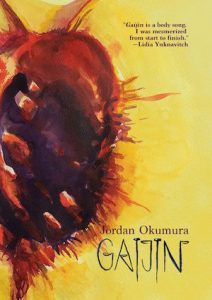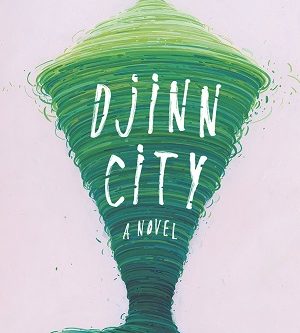 Gaijin, by Jordan Okumura
Gaijin, by Jordan Okumura
There is no one way to process grief. We’ve all heard of Kubler-Ross’ five stages, but the process is as personal and unique as the people dealing with it. There is, I think, a strong temptation in many of us to look away when another experiences trauma, be it out of fear or guilt. But in Jordan Okumura’s Gaijin, we have an opportunity to witness something as beautiful as it is painful and transformative as it is deconstructive. The book is an exploration of the intimacy of grief and a documentation of one particular battle with it. Like its protagonist, the book continually undertakes an identity crisis. There are repeated attempts at following a traditional story structure, all of which wade back into a river of sensory and emotional information. This is not a flaw. Rather, it is a profound envelopment in a very human thought process, a process in the midst of resolving trauma. The language and tone alternate between overflowing consciousness and sudden focus, dancing as an intelligent, stimulated mind is want to do. Despite its inherent whimsy, the flow of the text is never stuttering or devoid of gravitas. As a reader, you can focus on fragmented concepts or grand revelations and neither will leave you wanting.
Fathers. Reaped from the ash of untended graves. I sit close to the edge of the uneven grass. With the wind spitting such heavy gusts, I cannot open my eyes to see that this grass has grown over all of the names.
The intensity of the revelations is matched by the scale of the reflections. Gaijin is caught between endless pairings – childhood and “maturity”, “male” and “female”, light and dark, realism and surrealism – and it makes no apologies. Of course, it is easy to avoid needing apologies when the language is of such quality that the author has ensnared the reader regardless.
They wanted to tear away at our beginnings, the way the sky tears apart cloud cover over the ocean. The need to dissipate more than reveal, to make room for memory.
This process of experience is not delivered to the reader in what one might consider to be “real” time. Jumps are made at random (again, as the mind is inclined to do), and this has two major effects: first, it shows that Okumura trusts her readers to comprehend a non-traditional narrative and to bear witness to the events as described, and second, it allows Okumura to show that neither the grief nor the trauma exist in isolation. Systems of oppression, be they sexist, racist, or classist, constantly make their presences felt, interfering with emotional grounding and trying to enforce alien perspective on a protagonist born of multiple worlds. There is a latent acceptance of the idea that the world turns regardless of your need to take a breath. Interestingly, Gaijin doesn’t use this notion to cynically suggest that such a breath is unimportant. Rather, there is a hint that the difficulty of the breath makes it all the more valuable.
I am reminded of caterpillars as I reflect on Okumura’s work. There is a constant sensation of layers in the words, some solid and some transparent, simultaneously oppressive and peeling. The protagonist is burrowing her way out, through walls that the world has wrapped around her, and through some walls she has helped construct. But of critical importance here is the avoidance of another cliché, in the idea that the emerging lifeform is the goal, some beautiful endpoint that needs to be arrived at or else the process was a waste of time. The caterpillar was and is beautiful. The transformative process of the grief was and is beautiful, every bit as much as whatever awaits on the other side. To render something terrible into something beautiful through language, without sacrificing any of the subject’s gravitas, is, I think, a goal every writer should strive to achieve. I believe Jordan has achieved that in Gaijin. And whether or not you have yet to discover tragedy, reading this will help you to understand the uniqueness of the experience and our relationships to it.
Gaijin by Jordan Okumura is now available through ccm



